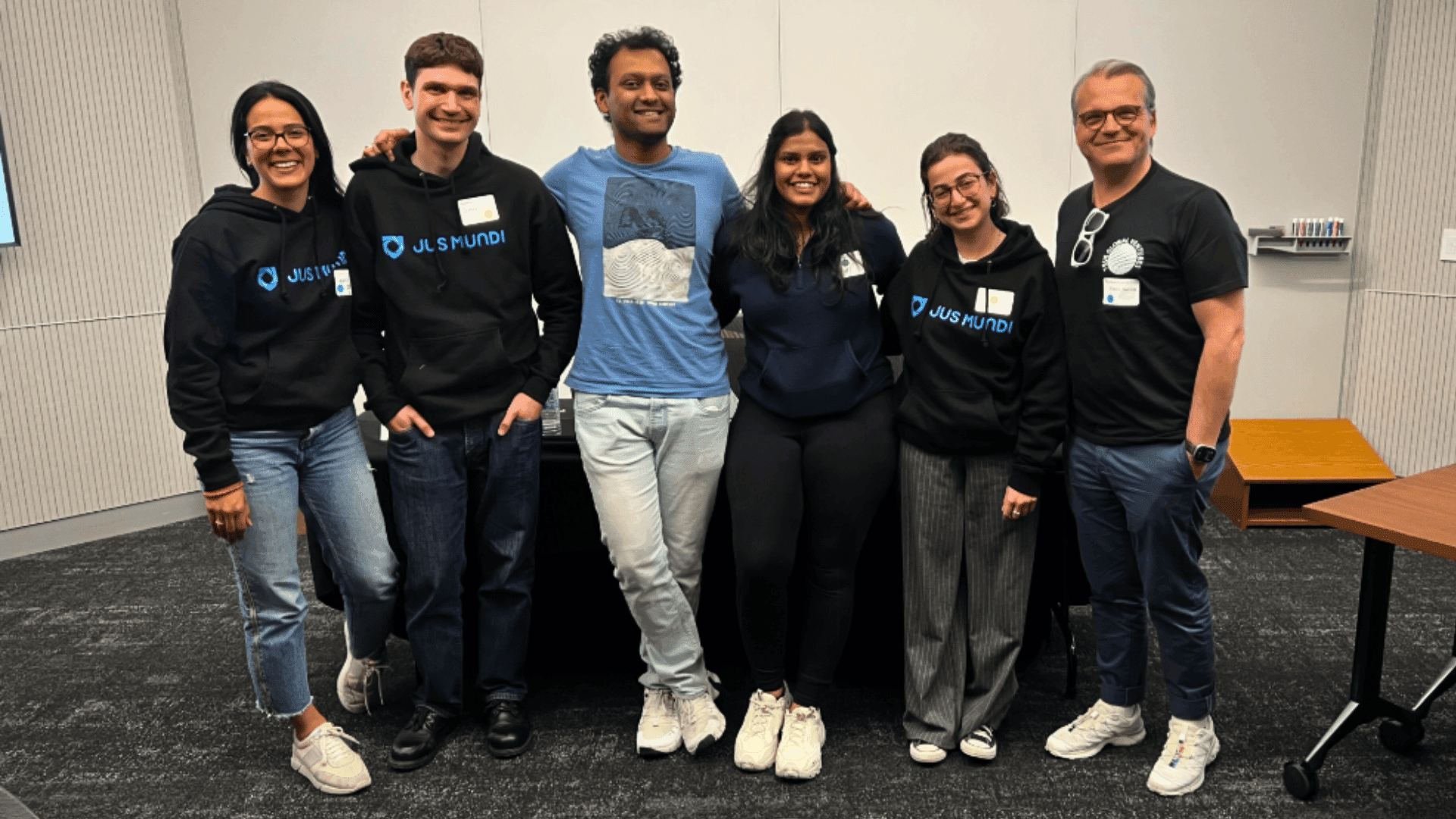The winning team of Jus Mundi’s inaugural hackathon, held in collaboration with Stanford’s CodeX, developed “JurisLink,” an AI-powered tool that uses a Knowledge Graph to efficiently identify and visualize conflicts of interest in arbitration cases. This innovation, praised for its actionable and transparent risk reports, underscores the growing impact of interdisciplinary collaboration in advancing legal technology, with future hackathons planned globally to further AI-driven solutions.
Jus Mundi Hackathon winners design AI tool that instantly identifies legal conflicts of interest
Paris, April 22, 2025 – The winning team of Jus Mundi’s inaugural hackathon, in collaboration with the Stanford Center for Legal Informatics (CodeX) produced an innovative AI tool designed to streamline the identification of legal conflicts of interest in complex cases.
The LLM x Law Hackathon, held on April 6, 2025, was designed to bring together legal professionals, academics, and technologists to develop Jus Mundi’s Jus AI suite of AI assistants. These AI tools help legal professionals with legal research, translation, document analysis, and drafting, enhancing speed and accuracy while leveraging Jus Mundi’s extensive international law and arbitration database. The seven teams who participated in the Hackathon were tasked with developing an AI-driven tool that would help lawyers identify potential conflicts of interest between individuals or entities. Historically, these checks are often time-consuming and error-prone, requiring extensive research across multiple sources.

‘JurisLink’ – actionable, explainable, and trustworthy risk reports
The winning team comprised Rohan Rao, a senior Enterprise Gen AI Architect at NVIDIA, and Mrunmayee Rane, a Machine Learning Engineer at Flavor App. Their solution, “JurisLink”, built from scratch over the course of the day, is an AI-powered legal intelligence platform designed to detect and assess conflicts of interest in high-stakes arbitration.
At its core is a Knowledge Graph engine that maps relationships across structured and unstructured data sources, including Jus Mundi’s legal database, public records, corporate affiliations, and social media signals, to reveal risks that may otherwise remain hidden. JurisLink visualizes connections and flags them based on the IBA’s Traffic Light System (Red, Orange, Green); giving legal professionals instant, actionable, explainable, and trustworthy risk reports. Rohan Rao explained: “My experience applying knowledge graphs in regulated industries like finance and healthcare inspired me to explore legal tech. This hackathon was a great opportunity to reduce research time for lawyers while making a meaningful impact.”
A Collaborative Milestone
Megan Ma, Associate Director of CodeX, praised the event’s interdisciplinary approach: “Hackathons like this highlight the growing demand for legal tech solutions among lawyers while building a vibrant community of innovators. It was exciting to see engineers gain clarity on how their work impacts the legal profession.”
The event is part of Jus Mundi’s global hackathon series aimed at advancing AI-driven solutions for arbitration and international law. Forthcoming events are planned at Cambridge University (June 22), Singapore Management University (October 11), and Paris (end of 2025).
Jus Mundi CEO Jean-Rémi de Maistre commented: “We are proud to support initiatives that drive innovation in legal technology. JurisLink exemplifies how generative AI can transform arbitration by improving efficiency and transparency.”
This press release is provided for informational purposes only. TomorrowsWorldToday.com is not responsible for the content, terms, or administration of Jus Mundi’s promotions. Please refer to Jus Mundi’s for the most accurate and up-to-date information. Tomorrow’s World Today may receive an affiliate commission if you purchase an independently reviewed product or service through a link on our website.







